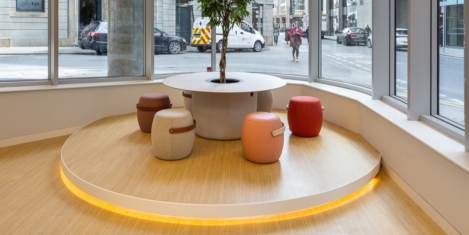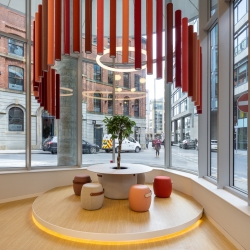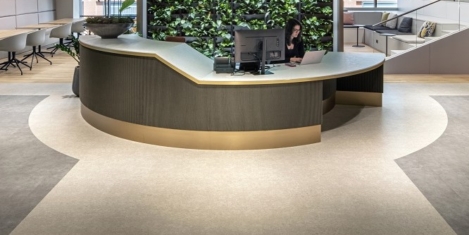To provide the best experiences, we use technologies like cookies to store and/or access device information. Consenting to these technologies will allow us to process data such as browsing behaviour or unique IDs on this site. Not consenting or withdrawing consent, may adversely affect certain features and functions.
The technical storage or access is strictly necessary for the legitimate purpose of enabling the use of a specific service explicitly requested by the subscriber or user, or for the sole purpose of carrying out the transmission of a communication over an electronic communications network.
The technical storage or access is necessary for the legitimate purpose of storing preferences that are not requested by the subscriber or user.
The technical storage or access that is used exclusively for statistical purposes.
The technical storage or access that is used exclusively for anonymous statistical purposes. Without a subpoena, voluntary compliance on the part of your Internet Service Provider, or additional records from a third party, information stored or retrieved for this purpose alone cannot usually be used to identify you.
The technical storage or access is required to create user profiles to send advertising, or to track the user on a website or across several websites for similar marketing purposes.
 The ongoing advancements in technology have made remote collaboration more feasible and seamless than ever before. Collaboration tools have become essential in ensuring the coexistence of the digital and physical workplace, both internally with employees and externally with clients. And in 2023, companies have been posting hybrid working related roles in record numbers, according to a new report from GlobalData. More →
The ongoing advancements in technology have made remote collaboration more feasible and seamless than ever before. Collaboration tools have become essential in ensuring the coexistence of the digital and physical workplace, both internally with employees and externally with clients. And in 2023, companies have been posting hybrid working related roles in record numbers, according to a new report from GlobalData. More →








 Way before the lockdown rewired the whole events scene in cities around the world, I was given a task by an old, now departed, friend. He wanted to explore the possibility of creating something like Clerkenwell Design Week in Manchester. The obvious problem was that, for some of its historic parallels, Manchester isn’t Clerkenwell and it certainly isn’t London. What it particularly lacked for this type of event was a hothouse of office design showrooms sharing space with a youthful community of architects and designers. The ecosystem for such an event didn’t really exist in the same way.
Way before the lockdown rewired the whole events scene in cities around the world, I was given a task by an old, now departed, friend. He wanted to explore the possibility of creating something like Clerkenwell Design Week in Manchester. The obvious problem was that, for some of its historic parallels, Manchester isn’t Clerkenwell and it certainly isn’t London. What it particularly lacked for this type of event was a hothouse of office design showrooms sharing space with a youthful community of architects and designers. The ecosystem for such an event didn’t really exist in the same way. 


 According to
According to 




 For many people, a large portion of the day is spent at the workplace. In fact, the average person will spend 90,000 hours at work over a lifetime. The Covid-19 pandemic saw the typical ‘workplace’ setting change for many people, after businesses around the globe were forced to adjust to a ‘work-from-home’ model. Now, three years later, we are starting to see more employees return to the office, with large corporations including JPMorgan, Chase, Apple and Google all announcing plans to bring their workers back to base.
For many people, a large portion of the day is spent at the workplace. In fact, the average person will spend 90,000 hours at work over a lifetime. The Covid-19 pandemic saw the typical ‘workplace’ setting change for many people, after businesses around the globe were forced to adjust to a ‘work-from-home’ model. Now, three years later, we are starting to see more employees return to the office, with large corporations including JPMorgan, Chase, Apple and Google all announcing plans to bring their workers back to base. 















November 24, 2023
The final word on… workplace trends
by Mark Eltringham • Comment, Flexible working, Workplace design